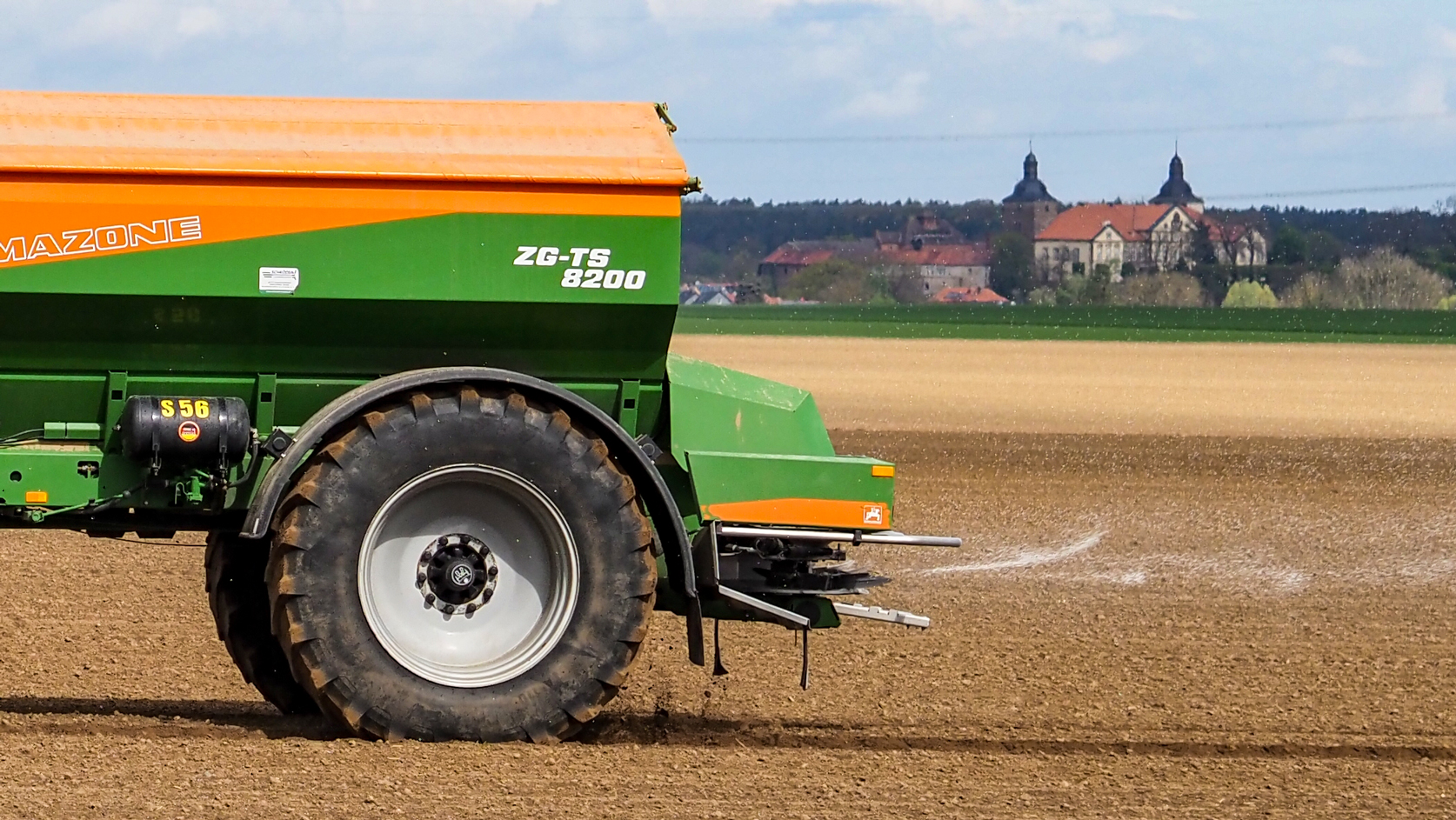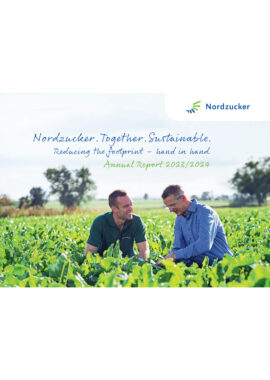
Nordzucker Post 2/2024 - 23 May 2024
Pilot projects in Germany and Denmark: Fertiliser with a lower carbon footprint reduces CO₂ in beet cultivation by up to 25 per cent
‘In Yara, we have found a fertiliser producer that also produces nitrogen fertilisers with a lower carbon footprint based on ammonia. This requires hydrogen,’ explains Björn Kiepe, Head of Agri Consulting & Shared Agri Services. ‘To obtain the energy source hydrogen for fertiliser production, Yara uses renewable energy instead of fossil fuels. This means up to 90 per cent less CO₂ emissions for nitrogen. Applied to sugar beet, this reduces its footprint by up to 25 per cent.’
It is important for the project with the farmers that farmers are generally in favour of climate-friendly solutions. This is all the more true in this case, as the new fertiliser is no different from conventional fertilisers in terms of handling and performance. One sensitive point, however, is the higher price. Nordzucker is providing support as part of the project and is also looking for ways in which the additional costs can be distributed fairly along the value chain.


